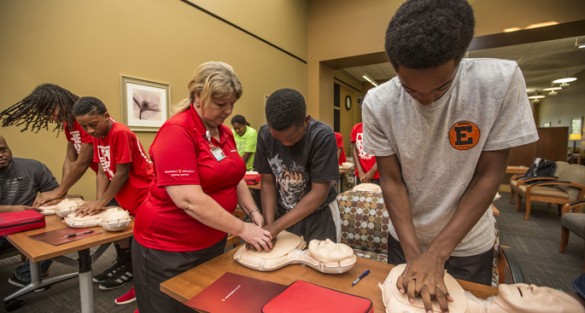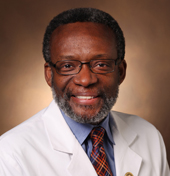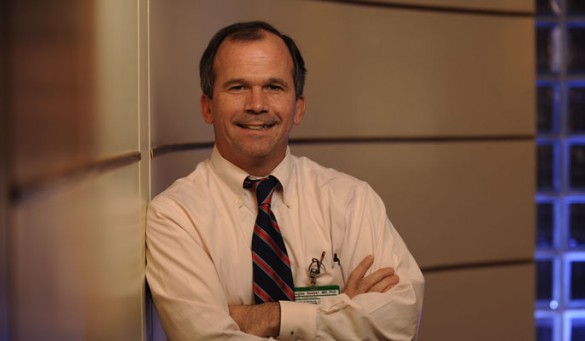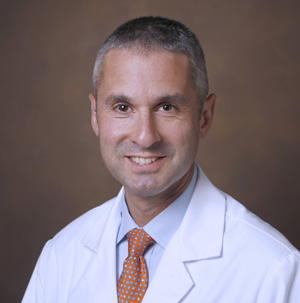
Vanderbilt Heart and Vascular Institute (VHVI) recently hosted a cardiovascular health screening for participants in a nonprofit organization called the Enplay Foundation, for middle and high school athletes and their adult family members.
Volunteers from VHVI, the Program for Injury Prevention in Youth Sports at Vanderbilt, Vanderbilt Pediatric Heart Institute and Faith Family Medical Center assisted with the screening process, which was held at Vanderbilt Health One Hundred Oaks on Sept. 27.
Enplay is a nonprofit organization that recruits children from families in Nashville and trains and mentors them in a highly competitive travel basketball program. Many of these children’s families, it is suspected, are not plugged in with regular medical care.
The mission of the organization is to use athletics (in this case, basketball) as a motivation to empower, nurture and prepare these at-risk children to be responsible and productive leaders of their communities.
Their players compete on travel basketball teams at a high level nationally. One of their young volunteer coaches (also a father of one of their players) died of sudden cardiac death last year at one of their games, and as a result, the organization and its founders, K.K. and Donald Wynn, are committed not only to mentoring their players, but in a broader sense, to help improve the health awareness of their players and their players’ families.
“I cannot begin to express how grateful Enplay and its families are for the amazing cardiovascular screening event that Vanderbilt hosted on Saturday,” said K.K. Wynn, Ed.D., assistant director of Enplay.
“I have always believed the old African proverb ‘It takes a village to raise a child.’ After this weekend, I’d like to modify the proverb to ‘It takes a village to raise a healthy child.’ Enplay’s parents are still raving about Vanderbilt’s kindness, patience and clarity. Everyone was well organized and executed with precision.”
The cardiovascular screening for adults included height/weight assessment (BMI), blood pressure assessment and lipid screening, as well as an opportunity to sign up for regular medical care. In addition, the AngioScreen company was on hand to provide rhythm/vascular screening for the adults who elected to do so at no cost.
Alex Diamond, D.O., MPH, assistant professor of Orthopaedic Surgery and Rehabilitation and Pediatrics, Frank Fish, M.D., professor of Pediatrics, and David Liddle, M.D., medical director at the Vanderbilt Dayani Center for Health and Wellness, oversaw the cardiovascular screening of the athletes, which included a physical exam, lipid screening, ECG, and, if indicated, an echocardiogram.
Carol Parsons, R.N., volunteered to perform a one-hour CPR and AED educational session and demonstration.
Representatives from Faith Family Medical Center were available at the screening to help the families establish regular medical care, should they need it, and to ensure that any abnormal screening results have a closely arranged follow up.
“The mission of the Enplay organization to use athletics as a vehicle to prepare adolescents to become responsible, productive leaders in their communities extends far beyond establishing a basketball skill-set,” said Emily Kurtz, M.D., director of Preventive Cardiology. “Enplay’s founders, K.K. and Donald Wynn, are committed not only to training and mentoring their players, but in a much broader sense, to improving the health awareness, physical activity and health behaviors of their athletes and their athletes’ families.
“We were delighted to have an opportunity to help support their efforts,” Kurtz said.















